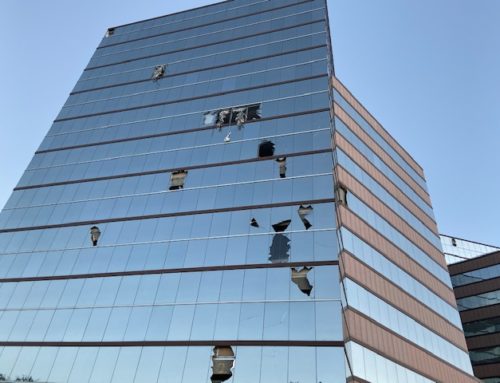 By: Michael Landauer / Dallas Morning News
By: Michael Landauer / Dallas Morning News
Orginally published January 28, 2011
Bill Bernstein is deputy director of Dallas-based Mosaic Family Services, a nonprofit organization that has helped more than 250 victims of human trafficking in North Texas. He is also co-chair of the Freedom Network USA, a coalition of agencies from across the country that provide social and legal services to trafficking survivors. This week, he was in Washington to speak to lawmakers on the issue.
There’s a lot of talk about the Super Bowl attracting sex workers, strippers and human traffickers. Is this exaggerated? Just how strong is the link between major sports events like this and human trafficking?
Advocates working with victims of human trafficking are encouraged by the attention the issue gets because of major events like this. There may be illegal activities going on connected with the Super Bowl, but we must also remember that human trafficking involves the control of one person by another using force, fraud or coercion.
Whatever the issue is surrounding major events like the World Cup or the Super Bowl, there is no debate that human trafficking is a major problem worldwide every day of the year. When the Super Bowl leaves North Texas, human trafficking will still be a problem here.
What does human trafficking look like in Dallas? What are people not seeing that they should know about?
Texas has certainly seen a disproportionate number of human trafficking cases. First, let’s use a more accurate word: What we are really talking about is slavery. We’re not talking about movement or travel; we’re talking about control.
As we know, the economy is better in the D-FW area than in much of the country, and the metroplex is at a north-south, east-west crossroads. The driving force behind trafficking is economics — money. So it makes sense that it’s an issue here. We know it’s happening here, and we assume there are many, many more victims whose suffering has not been uncovered.
Who is being trafficked through North Texas?
We’ve seen a lot of different kinds of cases. We’ve seen women working in nightclubs. In massage parlors. Men and women in domestic servitude, in agricultural work, in factory work, in nursing homes, in hotels and motels, and in many other types of labor. But there is no typical human trafficking case.
There was a woman who was a domestic servant in a house. She was never allowed to speak to anyone. She slept on a landing at the top of the stairs, even though the house had many bedrooms. Her papers were in the owner’s control. She was not paid, although she was told that money was being sent to her family. A person doing some work at the house became suspicious, and, eventually, with some support, she was brave enough to run away.
You are part of a regional task force devoted to this issue. Does law enforcement in North Texas devote enough resources to fighting the sex trade? Specifically, what more should be done?
The North Texas area is really setting a model for the rest of the country. A true task force of law enforcement personnel started about a year ago, housed in the office of Homeland Security investigations. It involves several local and federal enforcement agencies, from Dallas, Fort Worth and suburban areas.
Now, is this all talk or are you seeing real results?
They do good work. We are told that many cases are being investigated. I trust the enforcement people on this task force, and I am confident that things are moving along. There are issues they cannot talk about, since they involve ongoing investigations.
How did you get involved in this issue? Is there a specific case or someone you think of that keeps you from giving up the fight?
I’ve been working at Mosaic for 14 years now, and I started the program working with immigrants and refugees who are survivors of domestic violence. In 2001, there was a big case dealing with a large number of Vietnamese workers on the island of American Samoa, who actually threw a message in a bottle over a wall. Eventually, their message was discovered, and they were recovered. About 25 were brought to Dallas, and we were contacted by the federal authorities to help these people settle here because of our work with refugees.
What does success look like after a rescue operation like that?
After having begun their lives in Dallas, some of the women were flown to Hawaii to testify against the person who had controlled their lives for so long, which, as you might imagine, was a very stressful thing to do. The man who ran the factory was sentenced to 40 years in a federal penitentiary. He will be there for a very, very long time. The women brought their families to Dallas and got jobs, and it’s very gratifying to see them become self-sufficient, making lives for themselves here.
This interview was conducted, condensed and edited by Dallas Morning News Assistant Editorial Page Editor Michael Landauer. His e-mail address is mlandauer@dallasnews.com. Bill Bernstein’s e-mail address is billb@mosaicservices.org. Mosaic’s website is mosaicservices.org.

